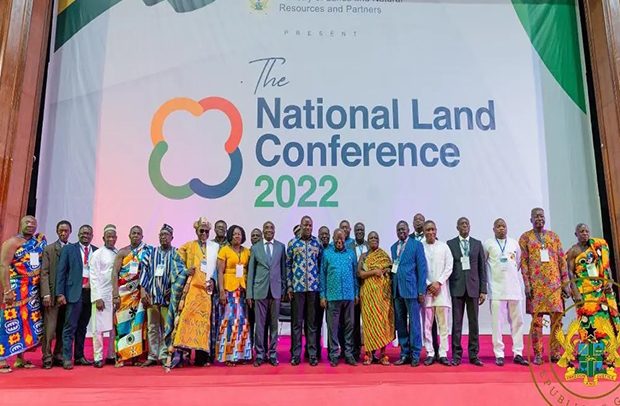The Land Conference in Accra at which President Akufo-Addo called for a total digitisation of the land management acquisition processes in Ghana offered us another opportunity to dissect a conundrum which has defied treatment over the years.
In spite of the many interventions brought to bear upon the nagging subject of land acquisition, it continues to stand out as one of the most naughty challenges facing us as a nation with Accra standing as the tallest.
The Land Reforms, the establishment of the Stool Lands Secretariat interventions, among many others, have not yet ensured a reversal of the worrying status quo.
Despite the many dividends to be derived from digitising the process at the Lands Commission, the inefficient manual procedure still stands shoulder to shoulder with the modern template. We acknowledge the loss that would be incurred by those who benefit illegitimately from the total reversal of the current trend. Such persons, unless they are stopped, would encourage the use of the antiquated process because of the room it presents for them to tread on the corruption tangent. They would even throw spanners into the works to give digitisation a bad name so they can easily hide files and do the nasty things which they have mastered over the years.
These must change by all means.
It is unacceptable that in a modern age of digitisation, we are yet to completely leverage on the technology driven template.
The nightmare associated with land acquisition continues and we are constrained to ask whether there is a tendentious project to pay lip service to the subject because, the marked changes we should be witnessing are hardly observed.
The land conference adds to the many engagements held to iron out the hiccups on the subject under review.
The recommendations from the conference would not yield the desired results unless there are concerted efforts to reverse the unacceptable status quo.
The conference approach, which venue experts come and talk about assortment of related issues, must be backed by regular monitoring and evaluation.
Double sale of lands, fake documents, long and stressful court procedures over land issues, and the menace of thugs infamously called land thugs, are but some of the challenges bringing to bear upon the land issues.
Even in some instances, the bulwark against challenges, land registration, has not provided the needed protection against encroachment and litigation.
It is our hope that recommendations from the conference and supporting efforts would be brought to bear upon the subject so that decency would become a hallmark of land acquisition in the country.


